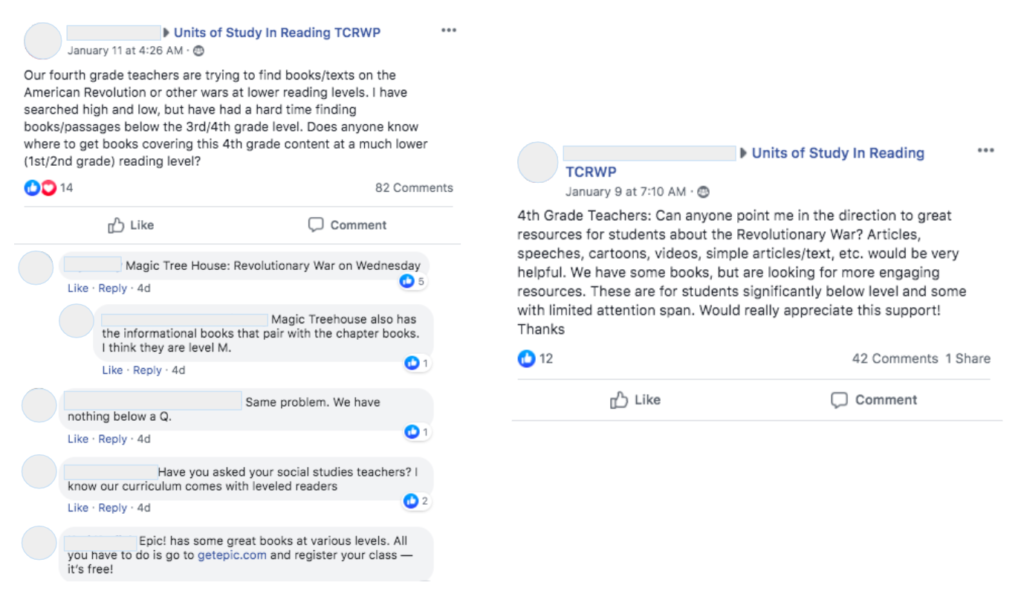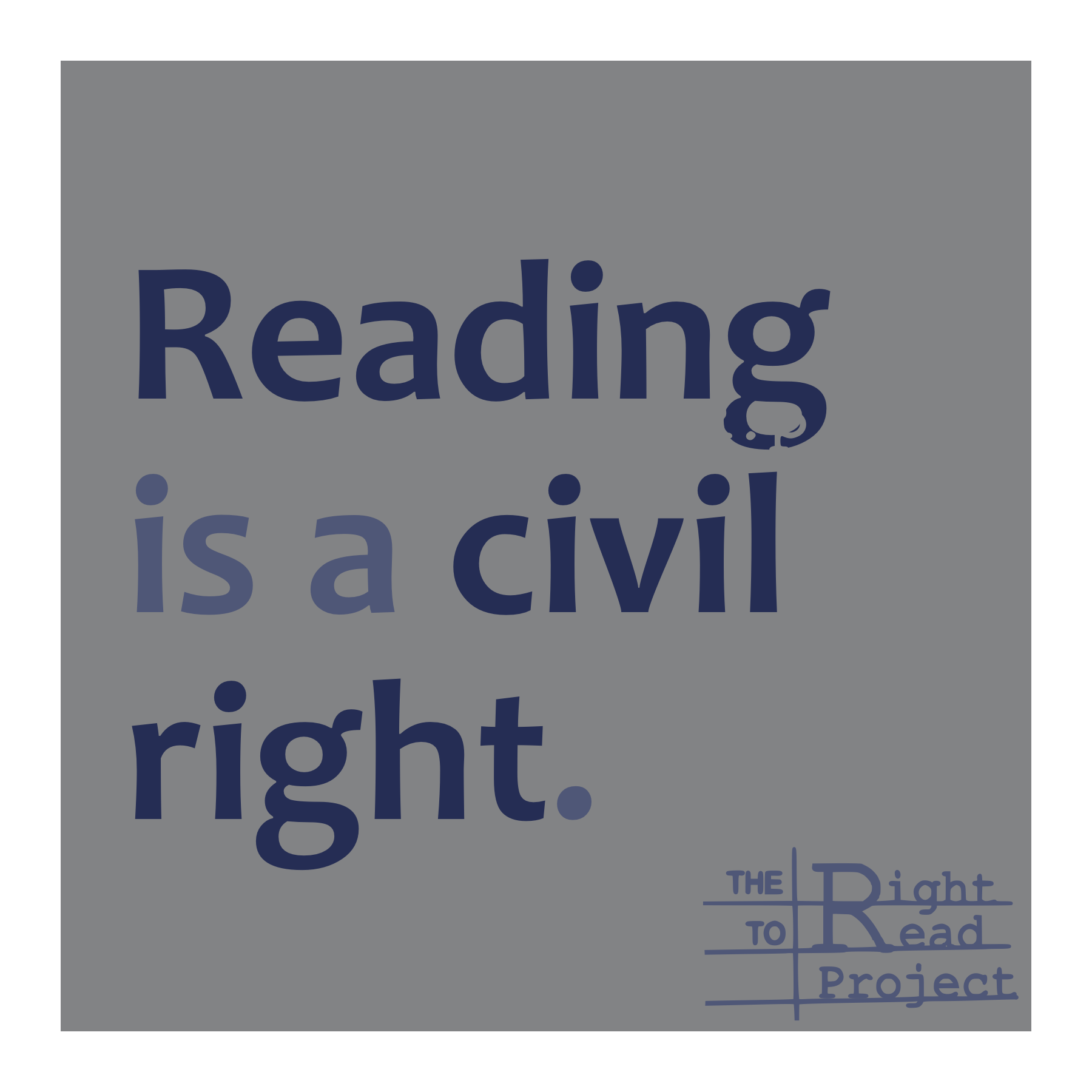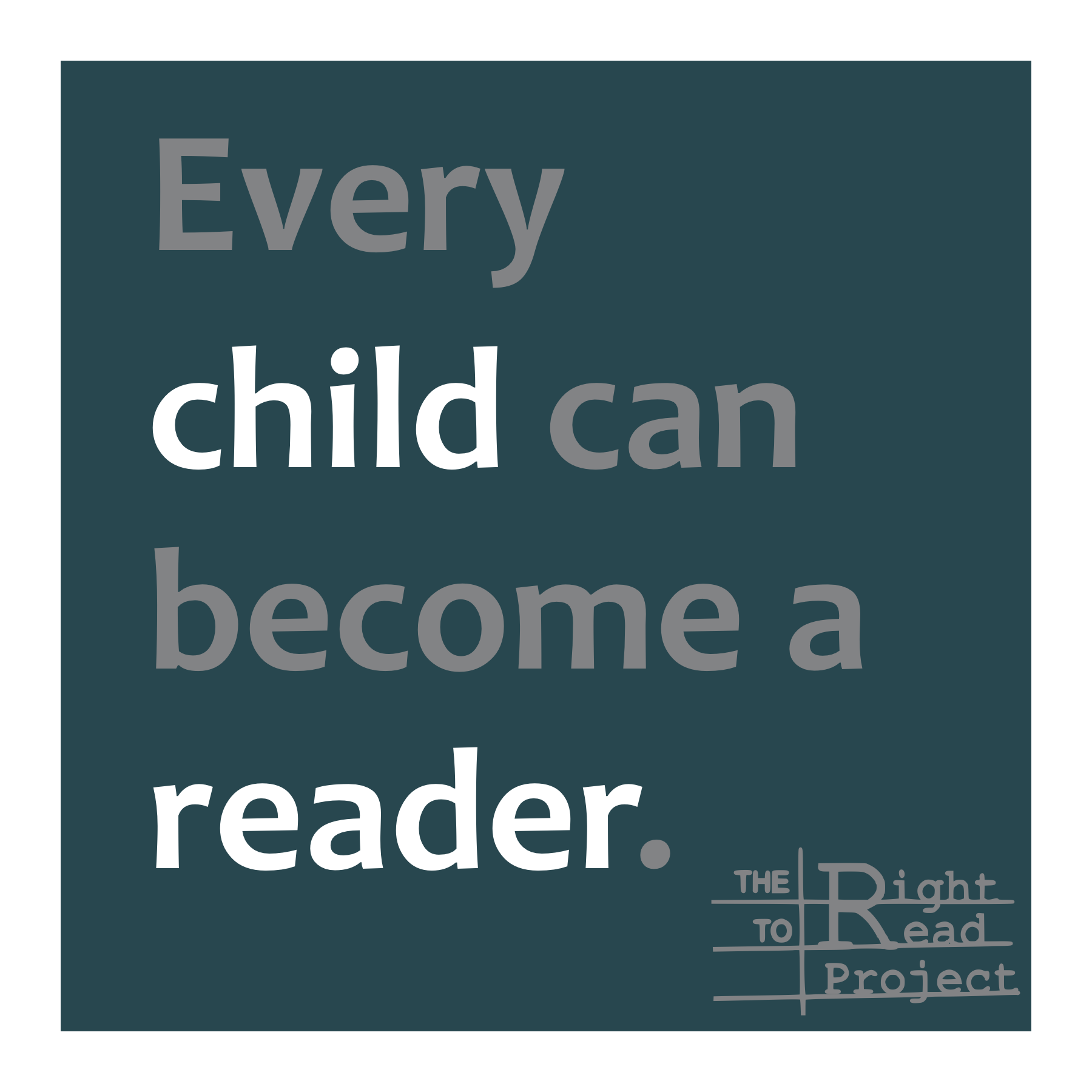Confession
I always had students who entered my fourth grade class reading significantly below grade level. And each year, when I passed them on to fifth grade, those students were still behind. I did everything I knew how to do- I taught Guided Reading lessons, provided independent reading time, found them books to love, replied to readers’ response journals- but no matter what I tried in my Balanced Literacy classroom, the achievement gap persisted.
Teachers want to believe that every child can become an avid reader, however, many of us have come to think that having struggling readers in upper grade classrooms is somehow unavoidable. But if we are brave enough to reconsider how we teach, we can help ensure that all our students become good readers.
Book Choices Reflect Our Expectations
One year, the parents of a below-level reader asked for a copy of our social studies textbook so they could help him at home. I let them borrow the book but I remember thinking that it was unfair to make him face a text so far above his reading level. I believed that if a book required struggle, it should be avoided.
I didn’t know that compelling research (like this) showed that using “frustrational level” books with classroom practices like dyad reading could help in closing the achievement gap:
“Delayed readers, who were reading at one or two years below grade level at the beginning of the study, achieved increases in reading level sufficient to bring them to or above grade-level benchmarks after the intervention, helping to close the achievement gap for those readers.”
(Trottier Brown, Mohr, Wilcox & Barrett 2017)
I followed the guidelines of Balanced Literacy when matching students with books. That’s why posts like these feel familiar:

But research has shown that providing students low-level books actually exacerbates the achievement gap.
A Critical and Helpful Review
A non-profit, Student Achievement Partners, commissioned seven reading experts (several of whom have research cited in Units of Study) to analyze the program. The report is the first in a series that will review curricula by a variety of publishers.
“Our goal is to make transparent the research-based practices that should be evident in literacy programs and in play in classrooms, particularly to accelerate students who are not reading at grade level.”
Dr. Lucy Calkins said, regarding her program’s review:
“It’s long, detailed, and not pretty.”
The reading researchers expressed concerns about Units of Study related to the:
- insufficiency of foundational skills instruction
- inadequate opportunities to read complex text and develop academic language
- lack of vocabulary and knowledge development
- inadequacy of supports for English learners
The only review that could be considered favorable came from a researcher with ties to the published curricula.

But Calkins didn’t mention in her response that the report is hugely helpful for teachers who are trying to reach diverse learners.
I read the review with my struggling readers in mind, and I appreciated the summaries of current research and the guidance offered. One researcher even rewrote a few of the program’s vignettes to demonstrate how they could be made more impactful for English Learners.
For teachers who plan to continue using Units of Study, a deep analysis of the review could help in making research-informed instructional decisions. The reviewers expressed concern about the “make your own adventure” design of Units of Study, but of course, that’s why we love it- there are so many opportunities to make the lessons our own. But to make wise choices, we need to know the current reading research.
The Impact of Our Choices
Dr. Marilyn Adams reported that in Units of Study:
“There are some good units, but there are more units that are not so good.”
But when Adams describe the 4th grade unit on the Revolutionary War – “it offers lots of different recommended texts for students on different aspects of the war, which, if read by students, would promote growth of knowledge and language across texts”– she missed a crucial factor.
When implementing Units of Study, we often supplement with low-level books that are not on the recommended lists. In the 4th grade nonfiction unit, a struggling reader may read Magic Treehouse: Revolutionary War on Wednesday, a fictional narrative written at the second-grade level. Units of Study doesn’t give us the strategies teachers need to scaffold complex texts with our instruction, so we resort to leveled books and unwittingly limit student potential.
Dr. Timothy Shanahan expressed concern about the time students spend with “the kinds of texts that research has found to not stimulate much learning.”
And Dr. Lily Wong Fillmore explained:
“The additional worry is that children who can’t read well by grade 2 will be sent off by Units of Study to select impoverished little books to read on their own where they will be exposed to none of the language features and vocabulary that are important.”
The reading researchers not only expressed concern about the impact of Units of Study instruction on below-grade level readers, they also offered suggestions that would be helpful for any Balanced Literacy teacher.
Sharing and Amplifying Our Learning
Student Achievement Partners selected Units of Study for their first review because the materials are immensely popular and because their findings can be applied to other Balanced Literacy materials. As Dr. Lucy Calkins explained in an email to leaders of Teachers College Reading and Writing Project schools:
“I believe their intent was to review one balanced literacy curriculum, one basal, and two other programs in all, in a way that suggests that perhaps they think their reviews of selected representative programs will have broader implications. I do believe that a good deal of what they question about Units of Study are questions that could be raised about any sister/brother balanced literacy program.”
Calkins also apologized to school leaders:
“I anticipate that this could create problems for some of you, as well as for those of us at TCRWP central, and I couldn’t be more sorry. We don’t yet know what kind of attention this will receive. If the report happens to go under the radar, let’s let it stay there—be forewarned, but don’t amplify it by sharing.”
But we can’t ignore this report and all the research it contains. We have strong beliefs about instruction but we also have struggling readers. Discussing how well our materials align with reading research is an important part of making instructional decisions.
To honor the students who need us the most, let’s devote ourselves to learning from the report and the research it references. We need to help each other and amplify what we learn because, as Phyllis C. Hunter said:
“Good won’t do when better is possible.”









[…] Educators have shared concerns, as well. Mostly these have been shared as social media posts, but this elementary teacher’s blog shares detailed pros and cons of Reading Workshop, and actually covers subtly different concerns, such as “minimal guidance” provided to students. Margaret Goldberg wrote about the text level concerns. […]
I’d like to respond to and clarify the possible implication that my portion of the Student Achievement Partners’ review of Units of Study was biased because of my “ties to the published curriculum.”
I was initially contacted by SAP last fall and asked if I would be interested in participating in its review of Units of Study. Upon receiving the invitation, I revealed to SAP that I had previously reviewed portions of Units of Study in Phonics for Heinemann (the publisher), and thus would understand completely if they declined to include me.
Despite my revelation, SAP made the decision and request that I be part of the review team and to focus my review specifically on reading fluency as that has been an area of scholarly focus for me for 40+ years.
Although, my review of fluency (a critical foundational competency, especially for struggling readers) was generally favorable, it was based solely on my professional expertise and judgement as well as my sense of ethical responsibility, and NOT on any previous “ties’ to the publisher.
Sincerely,
Timothy Rasinski
(This is a corrected version. Sorry. Old eyes.)
May I offer some thoughts about what we can DO to get science-based practices implemented in schools?
On the question of which reading curriculum a teacher uses, how much does it matter what the teacher wants? Or even what principal wants?
To teach systematic and explicit phonics, is it not true that teachers MUST be provided with class sets of decodable texts?
To provide the vocabulary background needed for reading comprehension, must not teachers be provided class sets of books that include that background?
But in school budgets, class sets of books are a big ticket item.
In most states, under the “free public education” laws, every student must be loaned an “approved basal” in each subject.
That’s expensive, so nearly all school boards “adopt” and buy a new class set for ONE of the 6 usually major subjects only every 6 years.
That means each school must loan out the new books they buy for the next 6 years. And when budgets get tight, as they often do, no new adoption is done, adoption is pushed back, and the kids must re-use the class sets for more years.
So if the school board has bought non-SOR materials, as most have, even if the teachers and the principal want better books, the school board is highly unlikely to approve their purchase for years. In schools, “the budget wags the dog.”
This is one of the rare cases where I am an advocate of “top down reform.” Whether or not professionals treating people should follow scientific best practices should not be negotiable or optional.
To win kids instruction that aligns with what science says works, legislatures must be convinced to fund the purchase of decodables outside of local adoption cycles, pay for training in how to use them (teaching reading right IS rocket science), and not allow state funds to be use for purchase of reading materials that science says use ineffective strategies.
Convincing legislatures to do the right thing in most cases will require lobbying influential business leaders to support science-based instruction in reading AND math. But that should not be a hard sell. Those who hire understand the need for a well-educated workforce.
Bottom Line: For better student achievement, work on persuading FUNDERS of education who have funds to buy teachers books that work and training in how to use them.
— Eric (rick) nelson